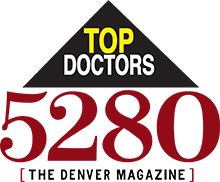
How to Stay Active this Summer with COVID-19
With Memorial Day behind us, summer is upon us, and, for most people, that means more socializing, travel and public activities. After months of lockdown, the opportunity to get out and enjoy ourselves may be too appealing to deny, but you should still take precautions to minimize your exposure to COVID-19.
How Big Is the Risk?
It may appear that society is returning to normal, now that many states have eased lockdown restrictions, but you should understand that we are still in the middle of a pandemic. Despite a few minor advances in treating COVID-19, there is still no cure or vaccine. Therefore, if you don’t protect yourself, you can still become infected, and if you do become infected, you are gambling with your life.
In the United States, more than 100,000 people have died from COVID-19, and 1.8 million have confirmed they were infected. According to the Centers for Disease Control and Prevention, the infection mortality rate is 1.4 percent. This figure is only an estimate as many public health experts believe that many more have been infected and many deaths that have been attributed to other causes may, in fact, be due to COVID-19.
However, there are additional factors that may add to your risk. If you are over 65 years of age, your risk of dying from COVID-19 actually increases to 14.1 percent. You are also at elevated risk if you have a chronic health condition like diabetes, heart disease or high cholesterol; almost 89 percent of fatalities had such a condition.
In general, COVID-19 is extremely contagious which plays a large role in why there is so much concern about this pandemic. One of the big differences between COVID-19 and other respiratory illnesses is that COVID-19 is infectious even if the infected is not showing symptoms like coughing or fever. That means that many people can spread the virus merely by breathing or touching a surface.
General Safety Precautions
Given the lethality and contagiousness of COVID-19, it is extremely important that you take precautions to prevent infection. After all, you aren’t just protecting yourself; you are also ensuring the wellbeing of family, friends and anyone you might meet.
Here are some best practices for keeping yourself safe from COVID-19.
- Stay home—the less time you spend in crowds or interacting with other people, the safer you will be. So, if possible, avoid making a trip outside of your home, or if you must, combine your trips into as few as possible.
- Wear a face covering—it might be uncomfortable but wearing a mask is one of the best ways to limit the transmission of germs. If you must go out, then help slow the spread of COVID-19 by covering your mouth and nose.
- Remain socially distant—in situations where it is possible, try to maintain at least six feet of distance between yourself and others. This may be less relevant outdoors where the wind may remove air particulates more readily, but you should still maintain social distance while wearing a mask because masks do not catch all particles.
- Wash your hands often—it is possible to spread COVID-19 by touching a surface that someone else has touched, so you should wash your hands with hot water and soap for 20 seconds as often as possible. If you are unable to do so, use an alcohol-based hand sanitizer.
- Disinfect often—to minimize the viruses on surfaces like doorknobs, desks and phones, regularly wipe down with disinfectant or cleaning sheets.
Enjoying Summer Safely
You probably want to do what you normally do in the warmer months like go to the beach or sit outside at a café, but you may want to adjust your routine to lower your COVID-19 risk.
- Travel safely—summer and vacation go hand in hand, so expect to spend long periods of time in a plane or car. If you are using a plane or train to travel, you may limit your COVID-19 risk by wearing a mask throughout the trip. If possible use an airline that leaves the middle seat empty. Wash your hands frequently and avoid touching your face.
- Staying away from home—in most cases, you won’t be staying with family or people you know well, and rented rooms may present some risks. Although more research is needed, most health experts agree that the coronavirus does not survive long outside of an organism, so most hotel and Airbnb rooms pose minimal infection risks. You should, however, clean surfaces like doorknobs, chairs and phones that may have been touched recently.
- Eating out—many restaurants are now employing safety measures like limited seating, employee face masks and frequent cleaning, but you may want to call ahead and inquire. If you have the option, sit outside to eat where there is more air circulation. The most prudent option, of course, is takeout.
- Family meetings—many families gather during the summer, but now may not be the ideal time for that. Especially older family members should avoid personal interactions with others including children who may unknowingly transmit the virus.
- Beach trips—a beach may be more dangerous than other kinds of outdoor activities if there is overcrowding. Do your best to maintain social distancing. If overcrowding is an issue, try to go earlier in the day when there are fewer people.
- Hiking—walking, running and biking may be some of the safest ways to spend your vacation time because they rarely involve large crowds. While performing these activities avoid getting close to strangers and continue to wear masks.
- Picnics—having a meal outdoors can be done safely, but it takes some guidelines. As always maintain six feet distance from others. You shouldn’t share food with people you aren’t sure are virus-free unless it is prepackaged and untouched. If you are cooking the food, that is usually sterile enough.
- Visiting friends—most people think their home is a safe space, but you should be proactive in maintaining it. If you have friends over, ask them to remain on the patio. Designate a guest bathroom that you clean thoroughly.
Article written by: Dr. Robert Moghim – CEO/Founder Colorado Pain Care
M.D. Disclaimer: The views expressed in this article are the personal views of Robert Moghim, M.D. and do not necessarily represent and are not intended to represent the views of the company or its employees. The information contained in this article does not constitute medical advice, nor does reading or accessing this information create a patient-provider relationship. Comments that you post will be shared with all visitors to this page. The comment feature is not governed by HIPAA and you should not post any of your private health information.



